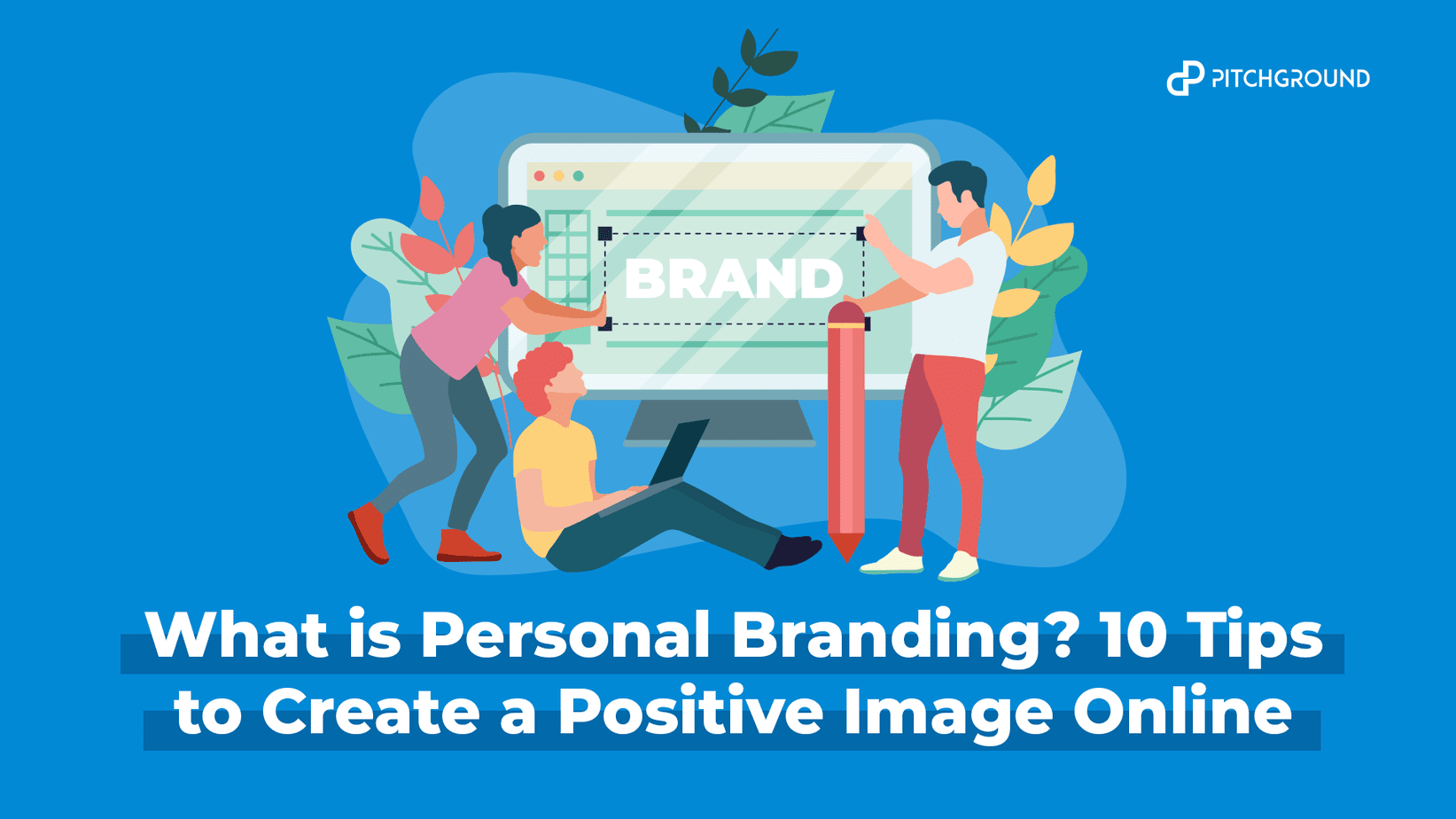Personal Branding is the art of creating an online presence that represents you, your business, and your brand in a way that makes you stand out from the crowd.
What better way to represent yourself than by using the internet? You’re building your personal brand when you build a website, social media profiles, or other digital platforms.
What is Personal Branding?
Personal branding isn’t just about having a great-looking website; it’s also about being able to share your personality and your passions with others. So start building your profile today, and let it speak for you!
How do you define your brand? What does your brand stand for? Is it something you want to build, or is it already made? Are you sure that your brand is unique?

The term ‘brand’ has become very important in recent times. Companies spend millions of dollars promoting their brands. People who create brands are often considered to be experts in their field. Your brand is your reputation. If you don’t build a good brand, you’ll struggle to succeed.
Personal branding is the art of building your identity. Your brand should be unique. It should represent your values and reflect your personality. It should also resonate with potential customers. In this course, we will go over everything you need to know to build your own personal brand and help you get started doing so.
You can never have too much info when starting any project. It includes your brand. Get as many details as possible. There’s always more information. Let’s dive in!
We are going to learn what personal branding really means. We will discuss why you should care about your brand and how you can use your brand to give back to society.
Statistics
- 84% of millennials trust neither the advertisements nor the brands that create them. (influencermarketinghub.com)
- When it comes to doing business with someone online, studies show that 70-80% of people research an influencer or brand before doing business with them. (digitalmarketing.org)
- The Manifest found that employers research candidates online, with 80% of human resources professionals saying a candidate’s personal website factored into their evaluation. (forbes.com)
- 57% of employers are less likely to interview a candidate they can’t find online. (blog.reputationx.com)
- 95% of businesses use social media in their recruiting process. (blog.reputationx.com)
- 77% of potential employers use search engines like Google to screen their candidates, and 35% of these employers admit that they eliminated a candidate from consideration based on the information they found online. (blog.reputationx.com)
- Global executives attribute 45% of their company’s reputation to the reputation of their CEO (blog.reputationx.com)
- The average person now switches jobs every 2-3 years, and 40% of the workforce will freelance by 2020. (brandyourself.com)
- According to a recent study from Weber Shandwick: Global executives attribute 45% of their company’s reputation to the reputation of their CEO. (brandyourself.com)
What is Personal Branding?
Personal branding is building an online presence that makes it easier to find out who you really are, what your strengths are, and what makes you unique. It would help if you tried to make your brand accessible through different channels such as social media, blogs, videos, podcasts, etc.
Why Should I Care About My Brand?
There are two main reasons why you should care about building a strong brand:
1) A brand helps you stand out among other competitors
2) Building a brand allows you to work for yourself and not someone else
How Do I Make My Brand Unique?
There are several ways to make sure your brand is unique. Here are some examples of things you can do:
• Use a logo/brand colors that represent your values and personality.
• Build a blog – write content related to your niche and share it regularly. Blogging shows that you’re consistent and have a clear audience.
• Start a podcast. Podcasts allow you to talk directly to your audience and provide value. The more valuable you are, the more people will listen to you.
• Create an Instagram account – start engaging your target market there.
• Have a YouTube channel – build up a community and attract customers.
• Sell products – if you have a product that solves a problem, offer it at a discount to your followers. People love discounts!
• Be active on LinkedIn – this is where you’ll be able to connect with your ideal clients.
• Set up a Facebook page – let people know what you’re all about and how your services help others.
How to Build a Personal Brand

It may seem very simple, but building your brand takes time and effort. Here are seven steps to creating your personal brand.
1. Define Your Purpose and Goals
Have a clear purpose and goals for your personal brand. For example, I would write my purpose statement as follows:
My purpose is to provide excellent service to my clients to come back for more. I believe in living life fully and sharing what I learn along the way with others.
This statement clearly defines who I am and what I do. It helps connect with potential clients and future employers.
2. Identify Your Strengths & Weaknesses
List three things about yourself that are your greatest strengths and three things that are your most significant weaknesses. If you feel unsure about where to focus your efforts, ask trusted friends and family members for advice.
When you list your strengths and weaknesses, think about what aspects of your personality will serve you well and what factors won’t. It may mean that you need to spend more time focusing on your weaknesses than your strengths.
3. Develop Your Online Presence
Set up a Facebook page, Twitter account, LinkedIn profile, and any other social media accounts that are appropriate for you. Make sure these social media accounts represent you accurately and offer value to your target audience.
For example, I don’t use a lot of social media sites, but I recently started using Instagram. It’s a great site for posting pictures of myself, nature shots, and behind-the-scenes shots of my business. I also like Pinterest since most people share many types of images there.
4. Create Content That Reflects Who You Are
Create content that showcases your best qualities and resonates with your target market. As you create this content, consider the following questions:
Who could benefit from reading this post? What message does it send them? How can I tailor my posts to appeal to this person?
Think about what type of content you could create that would resonate with your target market. Use your answers to these questions to help you develop content ideas.
5. Promote Yourself Regularly
Promoting yourself regularly allows you to showcase your latest blog posts, links to your website, services, products, etc. If you’re running several blogs, this means promoting each one separately.
Also, promote yourself whenever you see an opportunity to connect with your network. For example, I’m always encouraging my friends to follow me on Facebook and Twitter.
6. Track Your Results
Track your results over a period of time (at least three months) after implementing the strategies outlined above to determine whether your personal brand strategy is working. You’ll know which areas to focus on next by tracking your progress.
7. Celebrate Successes and Learn From Failures
Celebrate successes in your journey towards success. And learn from failures and mistakes. These two actions will help you grow further and improve your personal brand.
Why is Personal Branding Important
Personal branding is about how others perceive you. To develop a positive perception of yourself, it is essential to establish and maintain a professional image.
A well-defined personal brand represents an individual’s expertise, skills, values, and personality.
It is common sense that personal branding matters. But what makes it important? Here are 5 reasons why personal branding is important.
1. Builds Trust – We live in a world where people are increasingly skeptical about each other. Therefore, building a trusted relationship with customers and colleagues is critical. One of the ways to achieve this is through effective personal branding.
2. Gives you a Competitive Advantage – When you have a clearly established personal brand, you can take action without being concerned about losing business. It allows you to focus on providing excellent service instead of worrying about how your competitors may behave.
3. Differentiate Yourself From Others – By establishing a unique personal brand, you can differentiate yourself from others and present yourself as a specialist in the industry.
4. Helps Establish Loyal Customers – There are many factors that could determine whether or not a customer stays with you. The first one is your credibility. A good personal brand establishes the right impression about you. Your customers will follow you because they know you provide quality service.
5. Improves Your Career Prospects – An expert in his field will always attract attention. Being recognized as such is beneficial, especially if you want to improve your career prospects.
Having a clearly defined personal brand means that people view you positively. And with positive perceptions comes opportunities. So, don’t wait any longer to build a solid personal brand. Start today and see results quickly.
If an individual has a well-defined personal brand, they stand a chance to succeed. They come across as confident, trustworthy, and knowledgeable. In addition, employers trust highly skilled professionals and hire those individuals who clearly show their expertise.
The Bottom Line:
Personal branding is a term used to describe how you present yourself online.
The goal is to build a unique brand image that represents who you are and what you do in such a way that you become an authority in your field. It is done by creating content that is original yet shareable.
Personal branding helps you stand out from the crowd. Your personal brand should reflect your personality, values, and style. Because every person has strengths, skills, and experiences that make them unique, it’s important to highlight what makes your work different.



